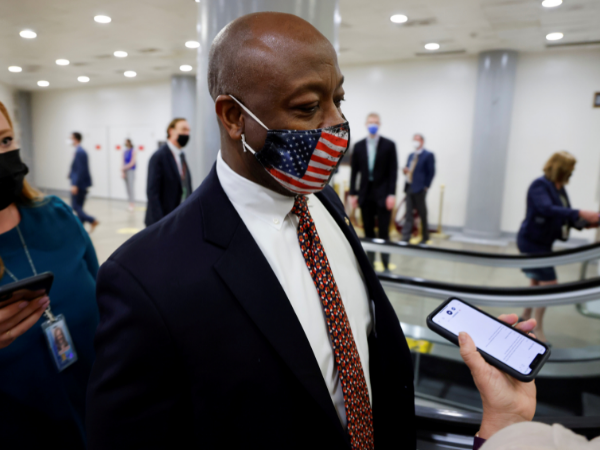US lawmakers reach agreement on policing reform deal, no details given
A bipartisan group of U.S. lawmakers said on Thursday they had reached an agreement on a framework for a policing reform bill, after weeks of talks.
“There is still more work to be done on the final bill, and nothing is agreed to until everything is agreed to,” Republican Senator Tim Scott, Democratic Senator Cory Booker and Democratic Representative Karen Bass said in a joint statement. “Over the next few weeks we look forward to continuing our work toward getting a finalized proposal across the finish line.”
They provided no additional details on their points of agreement.
White House spokesperson Jen Psaki said in a statement that President Joe Biden, a Democrat, was grateful to the three lawmakers for their work and looked forward to “collaborating with them on the path ahead.”
Bipartisan talks on policing were resurrected around the time of the April 20 conviction of former Minneapolis police officer Derek Chauvin for murdering George Floyd. A year earlier, previous efforts for police reform stalled in Congress.
Scott introduced a bill during global protests over the death in May 2020 of Floyd, an African-American man killed after Chauvin, who is white, kneeled on his neck for more than 9 minutes.

U.S. Senator Tim Scott speaks with reporters as he transits the subway system beneath the U.S. Capitol in Washington, U.S. April 27, 2021. REUTERS/Jonathan Ernst/File Photo
But that bill failed in the Senate after Democrats said it relied too much on incentives rather than mandating changes.
The House of Representatives passed a bill in March mostly along partisan lines that aims to put a stop to aggressive law enforcement tactics, but it has not yet been considered by the Senate.
A sticking point in policing talks had been the issue of qualified immunity.
Qualified immunity protects police officers and other types of government officials from civil litigation in certain circumstances, allowing lawsuits only when an individual’s “clearly established” statutory or constitutional rights have been violated.
Related Articles
Unions for police officers and sheriff’s departments had opposed the changes to qualified immunity made in the House bill.
Civilians currently face onerous legal barriers to try to hold police departments or municipalities accountable for civil rights violations.
According to Supreme Court precedent, civilians typically must show that official policies or certain customs were the “moving force” behind their injuries, or that the officer had been improperly trained. Courts often dismiss those claims, citing an absence of evidence.
(Reporting by Makini Brice in WashingtonEditing by Matthew Lewis and Grant McCool)

